|
Dr. Amy Woodworth is a professor of multiple courses in the Writing Arts department, so she is probably recognizable to many of you readers. However, you may not know that she is also the current chair of Rowan's Writing Arts department. I became aware of this while attending her Senior Seminar: Methods of Analysis and Evaluation of Writing course. Learning about this made me curious, as I was unaware of what being the chair really meant and what it entailed, so I decided to ask Dr. Woodworth about her role and the department. If you would like to see a more visual summary of the interview below, you can click here. MHC: What is your role as chair of the Writing Arts department? AW: “While any chair is considered the formal leader of a department, this department is definitely led by our awesome faculty collectively. I see myself as a steward who maintains the health and well-being of the department: beyond all the logistics of stuff that just has to happen (faculty need to be hired, students need to get into classes, etc.), my role is to help make people’s experiences here fulfilling and hopefully create an environment where they can be their best possible selves as writers, students, teachers, researchers, and community members.” MHC: How did you become the chair of this department? How long have you been in this role? AW: “Chairs are voted on by the faculty, and their terms are three years. This is one of the more democratic parts of university structures, at least for administrative roles. I am completing my second year of my first time right now!” MHC: What do you enjoy most about being the chair of the Writing Arts department? AW: “I love being a cheerleader and getting to recognize, celebrate, and promote our faculty and students! And I really love problem-solving and helping people. Not everyone likes this analogy, but I’m basically the department mom, and I am good with that. This role has allowed me to get to know our undergraduate students better; there are so many that I know pretty well at this point without even [having] them in one of my classes.” MHC: How would you describe the Writing Arts department and/or its members? AW: “Passionate! In every regard! They care about each other, and they care about the world. They recognize both the personal and the social importance and power of writing. They are always striving to grow and learn…I find our members humble but also always ready to brag on each other!” MHC: What are the goals of the members of the Writing Arts department? AW: “Can I cheat on this one and direct you to our vision and mission statements on this page? https://ccca.rowan.edu/departments/writingArts/” (Here you will find the Writing Arts department’s new motto: “Writing Arts: Making marks that shape the world” and its pledge to give both students and staff the ability to study, critique, and understand writing in order to create a better world. The department wants its students to be responsible and to have transformative experiences during their time at Rowan.) MHC: What makes Rowan’s Writing Arts department different from that of other universities? AW: “We are the only Department of Writing Arts in the country, at least by that name! Having an independent writing department outside of English allows writing and communication to take center stage rather than literary analysis, and it gives us the space to address a wider range of writing and writing contexts, from scientific writing to humor writing to DIY self-publishing.” MHC: What is one fact about the Writing Arts department that students may not know? AW: “We are one of the first independent writing departments in the country (housed outside of English). See point above: we are the only Department of Writing Arts in the country!” MHC: What courses would you recommend to incoming students? AW: “I think this really depends on the student and their passions! Usually I try to learn the kinds of writing they are into and then make recommendations, such as Writing the Young Adult Novel, Worldbuilding, Writing About Pop Culture, or Environmental Writing & Rhetoric, but there are so many practical classes that work for all of our concentrations, such as Editing for Publication. I definitely recommend getting out of your comfort zone and taking writing courses outside of your concentration: so many alumni comment on the ways that learning about technical writing made them a better creative writer and vice versa. I think most students are surprised…..” MHC: What is the difference between receiving your BA and MA in writing arts? AW: “The BA provides a strong foundation in writing and editing across a variety of genres, but the MA provides a deeper dive into craft and coaches students through writing much longer works (such as novels). MA students work on a long project over the course of an entire year, which enables them to reach significant goals while staying with the same mentors/advisors through the duration of the project. Getting an MA also qualifies people to teach at the college level, which many MA graduates go on to do.” MHC: What scholarships can writing arts students look forward to? AW: "We offer an Emerging Writers Scholarship to four-year students; the minimum award is $1000 per year for four years.” MHC: What writing groups can students join? AW: “The primary one is the Writing Arts Club; they do writing-based activities at meetings and often collaborate on projects and publications together, including a zine. Other relevant student organizations and publications are Avant, the undergraduate literary journal; Halftone, a student-run (and written) online magazine on pop culture; and The Whit, our campus newspaper. Our online humor magazine RU Joking? is also student run, though it doesn’t focus on student writing.” As a professor and chair of the department, Dr. Woodworth works hard for both students and staff in order to make the Writing Arts department the best it can be. With this brief interview and look into the Writing Arts department, I hope that people can come to appreciate her efforts both inside and outside the classroom. McKenna Harris-Colvin
0 Comments
During the Fall 2023 semester, I took Methods Of Analysis & Evaluation Of Writing, which was essentially the last writing class I had to take before graduating. It was a small class of, including myself, 7 people, that met in the Honors wing of Whitney Center (even though it wasn’t an Honors class), taught by Dr. Rausch.
Juliana Rausch got her Bachelor’s & Ph.D in American Literature & Critical Theory from Temple University. She’s been working here as a Lecturer from close to 5 years now, starting in September of 2019. She has published original research in Literary Journalism, along with a book review in American Book Review. She has taught a wide array of courses, in her own words, “from college composition to professional writing to writing methodology and theory. In Methods, we had to write four papers based on the topics and ideas we had been reading about and discussing. Specifically, they were on critical summaries, authorship, visual rhetoric, and literary narratives. Dr. Rausch taught these subjects in an engaging way, because she brought in readings and videos that she found interesting and wanted to discuss with the class. In a similar way, she let us choose any piece of art from any medium to focus on in our essays, as long as we focused on the topic at hand. It was a wonderful experience getting to have this freedom, as I then was excited to apply the course learnings. At the end of the semester, I felt as though I had written some of the strongest works in my time here at Rowan. ——————————————————————————————————————--————-- In a quick conversation with Dr. Rausch, I asked her about her experiences over the past 5 years at Rowan and throughout this past semester. When I asked about how she felt about Rowan, she responded, “I appreciate that even though I am a faculty member, I am provided with opportunities to serve the Rowan community outside the classroom”. She added that she loves the Writing Arts department, and that she has “the most supportive, caring colleagues who make [her] thankful for my job every single day”. Her favorite part of teaching is “getting to know students on a personal level”, and she says it’s “very rewarding to listen and learn from my students and build trusting relationships with them”. She also brought up that she is currently the Faculty Fellow for High Impact Practices & Student Equity here at Rowan. High impact practices are meant as ways for students to apply knowledge learned in class, as well as grow relations between students and faculty / students who are different from themselves. Dr. Rausch’s current role involves creating an inventory of all the different high impact practices Rowan currently has, so that Rowan can ensure “equitable learning outcomes for all students”. When asked what her experience with her role as Faculty Fellow, she replied, “The experience so far has been amazing. It allows me to contribute meaningfully to initiatives designed to promote equity, access, and inclusion, all of which are important to me and the people I work with. I have also really enjoyed collaborating with different departments and programs across campus, meeting new people, and just feeling connected to the broader Rowan community”. ——————————————————————————————————————--————-- A common theme across all of the answers Dr. Rausch gave is her focus on community and building relationships with other people, both faculty and students alike. This doesn’t come as a surprise to me, based on the semester I had her as a teacher. As our Methods class would begin drafting an essay, she would have built-in one-on-one meetings to discuss our progress with the writing. This seems to be a practice she implements across all of her classes, as it allows for direct feedback and time to help students create the writing pieces they envision. She would read through everyone’s drafts and took time to make notes/ask questions that showed that she was putting the effort in for all her students. It also allows her time to get to know the students and talk to them about anything else, be it her class, other classes, life, et cetera. In the scheduled time I had with Dr. Rausch, we talked about lots of things, ranging from upcoming class topics to eventually my worries or problems I was currently facing. She always wants to put her best foot forward and both get to know all of her students, and help them in any way she can. It feels as though she wants you to do the best you can and properly succeed, not just coast through the class. And you know, this isn’t a feeling that is exclusive to Dr. Rausch. I would say that all of the professors I’ve had during my time at Rowan have acted this way as well. Everyone in the Writing Arts Department wants to get to know you as a person and see you succeed as a student. It’s a very welcoming environment with a wonderful faculty. So why did I choose to write about Dr. Rausch? As I briefly mentioned before, one of the essays was a Literary Narrative, and I wrote a very personal essay about the people in my life that I am/were great friends with and how their love of art inspired my love of art. Dr. Rausch was super kind and supportive through the process and I felt comfortable enough to write that essay for her class. It was the last paper, so class ended before the essay was due, and once she graded it, she left an extremely sweet and touching note on the paper and my presence in class for the semester. It is one of the nicest things someone has said/written about me, and I really appreciate her kindness. So this is my thank you, a piece of writing directed back at her, appreciating her presence during that semester. ———————————————————————————————————————————-- I also recorded an interview with Dr. Rausch, going over different questions about her literaty journey. We talked about what brought her to become a professor, why she chose English/Writing as her subject, and why she came to Rowan, among other things. Check it out here. Written By: Robert Scanlon The Irish have the gift of storytelling. It is intrinsic to their DNA. It is no wonder that Rowan University Professor, Megan Atwood has the magic for weaving a tale. The author of sixty plus books, primarily for children and young adults, Atwood will be at the helm this spring of a study abroad trip to Britain and Ireland with her Genre Writing class. Incorporating her lessons for the upcoming adventure, Atwood’s students have read, among other texts, British author Neil Gaiman’s Neverwhere and The Likeness, a volume in the Dublin Murder Squad Series by American-born, and long-time Dublin resident, Tana French. 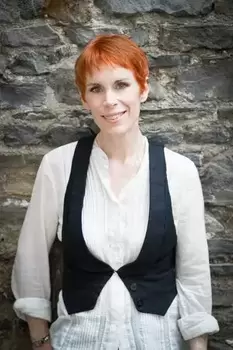 Tana French, author of the Dublin Murder Squad Series Tana French, author of the Dublin Murder Squad Series “So, Tana French of course is my girl,” says Atwood, “she is just my favorite. There is also Lucy Foley, I think she is a British writer. And another Irish writer is Dervla McTiernan. There seems to be a spate of English and Irish especially murder mysteries, at least I get very into them. I’m loving understanding the way that different cultures work through a mystery as well. Because The United States has a very specific relationship to crime. And to all the context of the United States behind that and that is fascinating to read. And to look at that in a different culture, you can understand that culture in a better way too. There’s a full host of historical things that inform the way people act and even commit crimes and even are punished for those crimes. So, I was really into that Irish and English exploration.” During the trip, Atwood and her class will visit small towns in the English and Irish countryside along with experiencing big cities like London and Dublin. Always the educator, Atwood has woven the itinerary into teaching lessons specific to the syllabus from the spring 2024 semester. “Each place that we visit I’ll have a prompt that asks to look at things through the genre lens. So, is there some sort of mystery, convention, or trope that this place would lend itself. For instance we’re going to London and we read Neverwhere by Neil Gaiman and that takes place in the underground under the tube, under the London Metro. And so, like talking about where else in London where you could find some places for horror? Where could you find magic? And then of course with fantasy and sci-fi, we’re going to Holyhead in Wales and there is some connection with the King Arthur myths, and what else could you imagine in this countryside?” While the journey abroad is strictly scholarly, Atwood has personal connections that run deep in Europe. In addition to her English/Irish/Scottish ancestry, she has fond memories of a prior trip to England, and a profound long lasting experience from when she studied a semester in Spain the second half of her junior year as an undergraduate at the University of Iowa. Atwood said the semester in Spain was so transformative that it changed her perspective, changed her life, changed everything. “I really want to give Rowan students a taste of that,” says Atwood. “Especially when it comes to creative writing, getting out of your own context is so important. And understanding that your lived experience isn’t everyone’s lived experience. I really wanted to give Rowan students a chance to step out of their normal lives even for a little bit. So, this is a way to do it without having to do it an entire semester. Yet, you still get the rich experience of seeing a different culture, seeing a different country.” 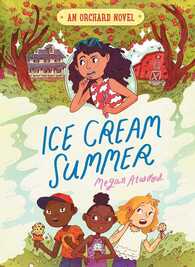 Back then, Atwood did not consider herself a writer. She thought of herself more as an editor. But seeing the world as a bigger place, becoming more accepting of other cultures and how people lived laid the foundation for her development that would eventually build an inner courage to tell her own stories. Says Atwood of her time living in Spain, “I was able to see this amazing art, amazing cultural artifacts. I was able to travel around Europe by train. Even taking different transportation was a whole new world. And at that time, there were no cell phones. I used a map. I figured my way through and had to be fairly reliant on myself. Just in every single way I grew.” The transcendence of moving through the world with only her own devices helped build her confidence, something that would shape her future career choices. “I mean one of the things that I love about writing is that you’re always learning, you always have to put yourself in another person’s shoes,” says Atwood, “it’s an exercise in empathy in so many ways. Taking yourself out of your normal context and understanding the world in a different way helps you do that. I honestly believe that I wouldn’t have been able to even get into my MFA program had I not had that experience where I was able to step back and look at things in a different light. And that stepping back too is also important because of the writing. Revising is where the work is. So, being able to step back and look at something through fresh eyes, same thing as taking yourself out of your cultural context.” Some time afterwards, Atwood embraced her artistry for creative writing. To the gain of Rowan University’s Writing Arts students she parlays that craft to young minds. For anyone who has ever taken a class with Atwood the gift of her teaching acumen is memorable. The moment you walk into her class you feel welcome and safe to reveal your soul as a writer. There are no literary mistakes. She encourages you to take chances. For her class in Writing Children’s Stories, for example, Atwood encourages students to reignite their child within to inform what becomes the written word on the page. Now, with her genre students in-toe, she is excited for their upcoming journey. In addition to the exciting itinerary to England, Ireland, and Wales that she will share with the class, Atwood also has plans to stay on afterwards, and travel throughout Scotland.  Photo of Ireland, copyright Tom McCarthy, 2024 Photo of Ireland, copyright Tom McCarthy, 2024 What new and wondrous encounters will lure Atwood’s creativity to the next realm we can only wait with great anticipation. In the meantime, she is focused on the expansion of her student’s worldview. By Adam Buckley: I often envy the Amish, because sometimes, churning butter feels preferable to managing a Google Sheet. Nevertheless, technology is an integral part of being a writer in the 21st century. You’re reading this on a digital site’s blog page just as I’m writing it via digital software. Perspective is key: I’ll take Microsoft Word over the stone tablet any day. The modern writer has many tools in their digital toolkit beyond a simple word processor. Exploring and employing your various online options can make you not just a more organized writer, but a more creative one, too. 1. Google Sheets I know I was just ragging on it, but I’ve found Google Sheets quite a useful tool for story planning. For fiction writers, particularly the ambitious ones, plotting and planning encompasses a large portion of the actual labor of writing. If you enjoy crafting an immense cast of characters with their own sprawling plotlines across a large number of chapters, a Google Sheet is a great tool to track where and when characters are. In my experience, it's low effort and high yield to manage a Google Sheet like this. With some simple color coding and elementary school knowledge of charts and tables, this is a simple but effective way to track a large amount of information. This is a screenshot of a Sheet of my own. I make sure to highlight which character appears in each chapter, that each chapter has its title and (spoilers) if a character died in said chapter. The vast amount of cells in a Google Sheet also allows for experimentation, as seen with the days of the week below the chart. I can track which chapters happen on which day along with everything else, all on one spreadsheet. In addition, with separate pages, one can map out distinct sections of their project, and whether that be “acts” or “parts”, Sheets gives you that flexibility. 2. Planning/Lore documents The next item is more a method of organization than a distinct tool. Creating specific folders for your different stories is a common practice, but I like to make a dedicated planning document separate from the main story document. Here, I give myself the freedom to explore whatever stray thoughts or ideas that come to mind in a dedicated space that I can go back and reference at any time. I use these planning docs as repositories of character backstories, concept/reference art, worldbuilding and potential chapters titles. All of these different collections of ideas can be managed with Google Docs’ chapter system. I label a section in the document itself then change the text's type from “normal text” to one of the “heading” options. These headings then become hyperlinks on the left-hand side of the page that, when clicked, instantly take you to a particular section. It's an amazingly convenient way of traveling through your documents without having to scan every page for what you’re looking for. 3. Canva Graphic design is my passion, and Canva is my best friend. Canva has a premium subscription that opens up many of its more elaborate templates and design elements, but its standard free scheme is perfectly serviceable for writerly purposes. Canva is relevant to writers because it's incredibly easy to pick up and start designing logos for your fictional organizations or banners for your great houses. When creating a “whiteboard” template, you have a blank white field that you can do what you want with. I’ve used it to create timelines for my projects, and its easily moveable elements make it effortless to change things to your liking. These services might not appeal to every writer, but they provide interesting ways to bring your ideas to life. Writing isn’t just the physical act, it's also these oddball ways of expressing yourself with your project in mind. Make some fake propaganda posters on behalf of your Evil Empire, or some in-universe internal memos or stickers with memey inside jokes you can slap on your laptop. Run wild, because who knows, it might open up the door for new ideas you wouldn’t have stumbled upon otherwise.
4. A.I. I do not endorse the use of A.I in any shape or form, but it had to be mentioned. At best, implementing A.I into your written work casts doubt upon your abilities and integrity as a writer, and at worst, you are a plagiarist. Ethically, I cannot and will not advise anyone to turn to A.I. at any stage of your creative journey. Is it tempting? Yes. Is it wrong? Also yes. Generative A.I. gathers text off the internet, without the consent of its authors, in order to spit out answers at any given prompt. Not only is that morally dubious, but there’s no guarantee that text will make any sense or even help you creatively. Many turn to A.I. in the idea-generation phase, when there’s no clear-cut story and only the germ of an idea. Many have said that it's possible to bounce ideas off an A.I. model, but none of these are replacements for genuine, human ideas born from your brain and soul that you’ve workshopped with other real humans. A.I. might have its uses, but none that I could condone in a creative space. 5. Other writers While flesh and blood human beings are not, in fact, digital technologies, they are supremely valuable during any creative journey. Cave paintings, medicine, and the Model-T all pale in comparison to humanity’s greatest invention: community. On campus, your friends and classmates should always be willing to give your work a read or workshop it with you. And if they aren’t, you should make new friends. Your professors and the Writing Center are other avenues to connect with other writers from whom’s experience you can benefit from. Ask them to look at your work but also pick their brain for strategies they use, how they organize their workflow. Don’t feel bad about picking up tricks from other writers; we’re all stealing from each other anyway. These five tools are ones that, as a writer, you should be aware of if you’re not using them. My only ask is that you try on some of these like a new jacket, and if you find that the sleeves are too tight, or that Google Sheets is being a pain, then move on to the next one and see how that treats you. Ultimately, creating a workflow utilizing methods that you find the most beneficial is the end-goal. If none of these suit your fancy, it's important to remember that the internet is a wild frontier filled with other writers sharing their methods and secrets. Keep an open mind and you’ll never know what might help you take your writing to the next level. As a passionate writer or creator of any kind, there may come a time when you find yourself overflowing with ideas, pulled in different directions by your imagination. As much as we may prefer to have too many ideas rather than no ideas, this can be overwhelming and halt your overall progress, and leave you with more questions than answers. Which project should you focus on? How do you narrow down your focus in order to decide? What should you do when you begin feeling overwhelmed? How do you deal with it all? There are a few common ways to deal with it, some agreed upon by professors in the Writing Arts department. So you’re very inspired and have come up with multiple projects, maybe two, three, or five, or ten. Maybe only a couple of them are narrative pieces, and others are focused on more technical writing, or another different form and/or genre. However many projects you have, trying to work on them all or decide between them can exhaust you and sap away your enthusiasm. You may become overwhelmed or burnt out. Trying to work on them all could also keep you from finishing any one of them, and instead trap you in a cycle of progressing little by little or not at all. While you could potentially juggle some of these projects and bounce back and forth between them, it’s still a better idea to narrow down your focus to just one or two. One of the best ways to start is to keep your ideas organized. You could keep journals, create folders, put your work in boxes, whatever works best for you. Take notes and make sure you know the gist of the idea and all the factors that get you excited about it. If it’s a fictional project, for example, you could be invested in the concept, the plot, the setting, and so on. Whatever it may be, write it down. You could also add things that inspire you or remind you of the project, whether they be songs, pictures, books, games, and so on. If you organize everything physically rather than digitally, make sure you keep everything together in one place. Your notes will do you no good if you end up just misplacing them. You will want to keep organized so that if you eventually come to work on one of the ideas you’ve put on the backburner, you can be easily reminded about its details and not get caught up in not remembering anything. I myself use folders, journals, the notes app on my phone, and comments in the margins of my WIPs to keep my projects organized. Once you’ve organized your ideas, you can begin to pick and choose which one you’d like to focus on. Each of the professors I’ve spoken to has suggested that you choose whichever one makes you the most excited, which one inspires you and ignites your passion. (However, in a case where you're busy with other things and don’t have the time or energy to devote to that idea, you should choose whichever idea is the most practical). Being passionate about what you're working on will keep you motivated and increase the likelihood that you’ll finish the project and give it 100% of your effort. If you choose one you aren't as passionate about, it may lay abandoned soon after, or you may grow to dislike the idea altogether. If you find yourself struggling or stuck with your chosen focus, the projects you chose not to work on could help reinvigorate your passion. You could carefully switch to another project for some time and then come back to your main project with fresh eyes. Looking back at your other projects, or whatever notes you have for your main project, can make you excited to write and give you time to come up with new ideas. If you’re overwhelmed by everything, it may be best to take a step back and do something unrelated to your project. Go for a walk, listen to music, read a book, play a game. Remember that taking time away from your project can be a good thing. Whatever you end up doing can both relax you and could open your mind up to new possibilities for your WIPs. To summarize, when you have too many ideas, break them down and take note of what’s important. Decide which ones are most attractive to you, which ones feel like you need to complete them. If you’re feeling overwhelmed by the need to narrow down your focus or by whatever you’re working on, do something different and let your mind wander. Or, choose one of the projects you set aside and take a look at it. It may be just what you need. McKenna Harris-Colvin
Writers’ Room is Rowan University’s very own screenwriting workshop for short films, features, and episodic series! Created by Cinema Workshop as a subsidiary for those interested in screenwriting, Writers’ Room is a place where people can table read scripts and give feedback, while also teaching the rules of screenwriting and storytelling, developing upon ideas of fellow writers and their projects, and giving a chance for members to act out a multitude of characters from these scripts. Ever since its creation, Writers’ Room has been one of the club’s longest running workshops. I had the opportunity to meet up with the current co-runners of Writers’ Room, Brett Allen and Juliana (Jay) Oliveira, to ask them some questions concerning their experiences, histories, and personal favorite moments while being a part of Writers’ Room and seeing how it grew since they first joined. What's your name, year, and major, and what initially led you to Writers' Room? Brett: My name is Brett Allen. I’m a senior Radio, Television, and Film major, and I am one of the co-runners of Cinema Workshop’s Writers’ Room. To put into perspective, I’ve been part of Writers’ Room when it was temporarily called “Writers’ Zoom”. All jokes aside, it was my Freshman year that I joined both Cinema Workshop and tried to attend as many sessions of Writers’ Room as I possibly could. Then at the end of my Freshman year, I was elected as one of the new co-runners of Writers’ Room with my friend and alumni, Ethan Strohm. Ever since we started running Writers’ Room, the structure of it changed almost immediately. Whereas Writers’ Room prior was very casual on bringing in scripts and more focused on viewing television and film to study great writing, our Writers’ Room set bringing in scripts as a must, holding table reads and giving feedback. It wasn’t all there yet, but the soil was now laid out. After another election, I remained as one co-runner with a new one to work with, my friend (and also Ethan’s friend) and also alumni, Daniel Latch. Where the soil was first laid, Dan and I grew it together, setting into motion what Writers’ Room would be today; a well oiled machine manned by the folks that would bring in all their stories, talents, and ideas to the table. At the end of the year, we not only created a guidebook for future co-runners to follow and edit, but the election process for co-runners now became individual interviews, where the current co-runners and an E-Board member of Cinema Workshop chose a new co-runner instead. Since I still had one more year left, I had the pleasure of seeing this process through, and choosing my new co-runner, my friend (and not alumni yet!), Juliana Oliveira (or just Jay for short), the first Writing Arts co-runner of Writers’ Room. She has done nothing but carry that same talent and efficiency that Ethan and Dan brought to the table, and I can’t give her anything but praise. Today, Writers’ Room is vastly different from when it initially started, but it has definitely grown, and I have been more than honored to see it blossom into something greater in the three years I’ve been a co-runner. Jay: My name is Juliana Oliveira (but everyone calls me Jay). I’m a sophomore Writing Arts major, Film and TV Studies minor, and I am one of the co-runners of Cinema Workshop’s Writers’ Room. During the process of applying for college, I randomly came upon my desire to pursue a career in the film industry. At the time, I had no idea why or what I could do, but it was something that I just needed to try. I started out going to Cinema Workshop’s sister club, RTN (Radio Television Network), but I found that their projects didn’t quite align with my interests. It was there that I was first advertised to Cinema Workshop, and Writers’ Room by extension. I considered the possibility of a career in screenwriting; it combined two of my major interests at the time. But I had yet to actually gain experience in screenwriting. So, I started attending Writers’ Room. Being around all these wonderful creative people and seeing first hand how to pace and format scripts allowed me to enter the screenwriting landscape for the first time, and discover that it was just another genre with which I really enjoyed working. I have always been a writer, so I had simply found another skill to add to my toolbox. It just so happened that it was a skill that I really enjoyed using. What does the creative process mean to you, and how has that connected with Writers’ Room? Brett: For me, the creative process is a great love/hate relationship; you learn to hate what you love, and love what you hate. It’s a constant battle of questioning, re-drafting, throwing a multitude of ideas at the wall to see what sticks, what doesn’t, and what you want to rip off the wall and stomp into the ground. If there’s anything that this process has taught me about writing, it’s that nothing will work if you don’t work with yourself and with others. And that’s what first led me to join Writers’ Room during my Freshman year. Jay: For me, the creative process is never the same, whether you’re comparing two people or two projects. Personally, I have never had the same creative process twice among all my projects. What I think is most important about the process, and something that I lacked in the early days as a writer, is a community aspect. Peer review is so beneficial for all creative work, and this is what drew me to Writers’ Room in the first place. I had heard of Cinema Workshop previously, but once I found out that they also hosted a writing workshop, I was hooked. I was in search of a place where writers could share their work and receive meaningful feedback, and Writers’ Room was just the place. Do you have any particular moments that stand out to you since being in Writers’ Room? Why have they stuck? Brett: One moment that has really stuck with me in Writers’ Room, and it’s something relatively recent, was getting a special guest to speak not only for Writers’ Room, but for Cinema Workshop in general. Over the summer, I created an account for this website named Stage 32; a social media/forum site that catered to sharing thoughts, ideas, and more about every bit of the film process. It’s a place that I made a multitude of great connections with, and one of those connections was Sabrina Parra, a self-employed script consultant that worked in the industry. During the late summer and into this past Fall semester, we discussed our pasts, why we decided to pursue screenwriting and script consulting, and then I told her about Writers’ Room and Cinema Workshop. I can’t underestimate how gracious she was in wanting to lend her time to call in for Cinema Workshop and give the members the opportunity to ask her anything about her career, the film industry, and what advice she had to offer. Although this was an event that happened more or less outside of Writers’ Room, it was still an event attached to Jay and me that we had the capability to carry out on our own and bring to the forefront of Cinema Workshop after months of preparation, coordination, and scheduling. It’s something that I don’t think I would have ever considered if I either didn’t take the route that I did, or never became an active participant and co-runner of Writers’ Room. Having Jay by my side for this event tremendously helped me out in alleviating pressure, with the reassurance that it would all go well with our questions prepared, are times aligned, and the members there to take in all that Sabrina Parra had to say. For me, knowing that outside of scripts, we’re able to make something like that happen, just showed me how much Writers’ Room has evolved and what more it can do outside of our meeting times. Jay: At the end of my first semester as co-runner, I was able to sit at the front and dictate the ideas of the members as we wrote our group script. When I wasn’t typing, I was looking out to the room to see who was raising their hand, or who might have been thinking of an idea. Surprisingly, at some point, everyone had something to say. It was the kind of unity and community that makes Writers’ Room what it is, and it was almost cathartic to experience that first hand. There was no pressure, and everyone seemed to be having a good time doing something creative with the people they had bonded with throughout the semester. It’s the environment that I hope to be able to continue to foster during the remainder of my time as co-runner. What is a script you’ve read in Writer’ Room that you haven’t gotten out of your head? Why? Jay: We have seen the pilot episode of Blood Chronicle by Riley Murray go through several drafts in Writers’ Room, and although it’s been a while since I’ve had interest in a complex fantasy story, this particular script, introducing a fantastical world and the story of a young man becoming unwittingly involved in a plot to kill god, kept me hooked through every draft. I was excited to see it every time, curious about what feedback was taken and used, and what next steps might have possibly been taken. Riley has been one of our most avid attendees, and his dedication to both feedback and submissions is incredibly admirable. I hope to see the second episode of Blood Chronicle soon so that the story may continue. Additionally, I have to shout out Starchild by Grace Fox and Juliette Hunter. The very first Writers’ Room I attended was the week of Halloween during my freshman year, and because the projector wasn’t working, the hours were dedicated to helping Grace and Juliette brainstorm ideas for their script, in which the titular character traverses the universe in search of her mother, meeting friends and learning lessons along the way. That was when I realized that Writers’ Room wasn’t dedicated to the peer review part of the writing process; it could be so much more. I am proud to say that I was there to see that script being brainstormed, all the way through to its production. I watched it come to life through nearly every step, and I am so proud of everyone involved and the final result. Brett: There have been many brilliant scripts brought into Writers’ Room over the years, and it’s truly hard to only choose one that’s stuck with me. If I’m permitted, I would like to highlight three pieces that have stood out to me during my tenure. The first piece that comes to mind is a short script called Cherry Sorbet (written by Daniel Latch), “…a young man who observes how death permeates life around him in order to face a critical juncture”. Aside from being set in only the walls of a convenience store, Daniel's greatest strength is subtlety, carefully laying out the interactions and events that occur in the store which reflect the protagonist’s unspoken turmoil throughout the story. It’s visually brilliant, and the characters that surround the protagonist are wonderfully written to stand out on their own and indirectly assist the protagonist to come to his decision. Next comes Starchild (written by Grace Fox and Juliette Hunter), about the inventive and curious Starchild who travels the stars in search for her mother, meeting new friends and enemies along the way. Before it was produced into the beautifully constructed puppetry feature for Cinema Workshop, it started out as an amalgamation of ideas on a whiteboard in Writers’ Room. In an odd sense, it was the first script that I really saw come to life in Writers’ Room, starting out as a string of ideas big and small, and later formed into the small, yet grandiose script which captured my attention not only for its inventiveness, but heart as well. Then finally, there is All the World’s a Stage (written by Devin Burton), an episodic series about the hijinks and missions of a theater company heist crew. Technically it was multiple scripts that Devin brought into Writers’ Room, but each episode exemplified great character writing, a consistent flow of action and comedy, accented by that small blend of discomfort and world building that took it all home. The show essentially became an insider part of Writers’ Room, where every instance someone asked what they missed in Devin’s newest installment, it would most likely be met with a, “you had to be there for it”. Even with these three scripts as highlights, I can’t stress enough how creative every member in Writers’ Room is. There’s no script left unturned or forgotten, and I know I’ll be checking in on the members of Writers’ Room and asking how far along they’ve come with their projects. What hopes do you have for Writers’ Room and for Cinema Workshop in the future? And how would you wanna go about the next step towards that? Jay: As much as I love the way that Writers’ Room works now, I hope that in my final year, my new co-runner and I can implement some new practices to allow our members to get more personal attention, even if they aren’t writers or submitting scripts. Presentations are great, but it would be even better if we could put them into practice. Writers’ Room isn’t a class, but it is a workshop, and I feel as though the members should be able to come out of it with a new skill or new knowledge about screenwriting. As for Cinema Workshop, I definitely hope my new co-runner and I can create a more symbiotic relationship between Writers’ Room and CW. As a writing workshop, we could be so much more involved in the pre-production process, especially for the fests in the Fall semesters, so I’m hoping to figure out a way to better the process for those smaller productions. Brett: If there’s anything that I would like to leave behind for Writers’ Room and Cinema Workshop, I would say to not give up on each other. Community, kinship, and kindness go a long way for people, and that’s what Writers’ Room and Cinema Workshop should be built on and uphold. I’ve had the privilege to be a co-runner for three years, and a Cinema Workshop member for four, and I can’t stress enough how the connections and friendships I’ve made along the way helped me realize the potential I have, as well as recognizing the potential others have as well. We’re all different in the ways we look, the ways we talk, the ways we think, and that’s something that everyone should embrace. Don’t cast each other aside and turn a blind eye to those who aren’t of the same mindset or experience. Without community, without people, there is no Writers’ Room, there is no Cinema Workshop, there is nothing. Cast out your lifebuoys and keep track of your crew; when a ship needs to make it back to shore, we need all hands to set sail in the right direction. Is there anyone specific you’d like to shoutout for your time at Writers’ Room? Brett: There are two people I’d like to thank for this… okay, it’s actually a group of six people and a person separate from Writers’ Room but bear with me on this… Okay before the group and the separate person, let me thank Writers’ Room first. To all the folks that have come in and out of Writers’ Room, those new and old, those who are there actively or only stopped by once, I’d like to thank you all. Without the people, there is no Writers’ Room, and it’s because of the people that I had the pleasure of co-running, the pleasure to see all of your passions and creativity on paper and on screen, and for bringing nothing but laughter, tears, and fun to my tenure here at Rowan. Alrighty, now onto the six people. Kyle Foor, Taylor Drake, Joe Pidgeon, Ethan Strohm, Daniel Latch, and Jay Oliveira, thank you all. Without any of you, Writers’ Room would have never been my second home, the place that I would learn, teach, and love the ropes of screenwriting; to take a deeper look at what’s between the lines and how it translates onto the big screen. I feel I sound like I’m on my deathbed writing this out, but you all mean the world to me, and have brought a greater appreciation not just for screenwriting, but for filmmaking and teaching as well from what you all have given to me. And lastly, I would like to give a great thanks to one of the professors here at Rowan, someone outside the RTF major; Professor Fera. Professor, if you’re reading this, and I’m sure I’ve expressed it to you before, but you have no idea how much you truly helped me during my Freshman year here. I was stressed out of my mind, juggling online schoolwork, personal life, and my first two shoots with Cinema Workshop all in one semester, and I was uncertain as to how I was going to get out of it with good grades and a good mindset. I felt the final straw that was about to break my back, but you caught it just before it did. You helped me see that asking for help was okay, that admitting that I couldn’t handle all that was on my plate wasn’t a sign of defeat. Maybe it was also the fact that your son is also in film that brought on another level of understanding, but nonetheless, you truly uplifted me from the hardships of not only being in a new setting, but a new mindset and work environment as well. Whether it be College Comp. II or Writing Children’s Stories, if I had to take those classes over again with you as the professor, I gladly do it in a heartbeat just for your wisdom and virtuous educational skills. Jay: If I gave every name, the list would go on forever. Firstly, I’d like to thank my predecessor, Daniel Latch, who introduced me to Writers’ Room in the first place. He helped to create the environment that I came to love so dearly, and encouraged me to try out for co-runner as well. I want to thank him for the opportunity, and commend him for the legacy he left behind for me to fill. He’s a wonderful writer, and I hope to see his name on a world-famous script in the future. Secondly, I’d like to thank my current co-runner, Brett Allen, for welcoming me into the position. Not only was it an honor to be chosen for co-runner, but it’s been wonderful to work alongside Brett. He is insightful, accommodating, and he has made the transition into the position so much easier for me, so as excited as I am to continue with my new co-runner, I will certainly miss him, and I wish him the best. Finally, I’d like to thank all the active members of Writers’ Room, the people who are so adamant about showing up every week, the people who are confident enough to share their scripts, and everyone who has ever participated in Writers’ Room. It has been so fun reading their scripts and seeing all the ideas that they have, and nothing has made me happier than to watch them deliberate on a script and bounce ideas and feedback off of each other, forming bonds all along the way. I have truly had the best time co-running this workshop for everyone that attends, and the Room wouldn’t be the same without them. Cinema Workshop’s Writers’ Room meets every Thursday in Bozorth Hall in Room 118 from 7:00 PM to 9:15 PM. You don’t have to be a writer to join Writers’ Room! We welcome all voices, whether you just want to give feedback, voice characters, or meet new people. Thank you again to Brett and Jay for the chance to interview them, and we look forward to seeing you all there. Armaine Dela CruzTo know and understand Sara, the child storyteller, who became Sara Dudo, the poet and educator, is to see the world as she might see it – like a journey filled with wonder with peaks, valleys, and every possible terrain in between. Poetry is like that; the writer brings the reader along on a journey to delve into one’s soul. Professor Sara Dudo paints pictures with words. She looks at the world with what can almost be described as a camera’s lens. In her writing, nature is important to her, especially when compared to the body. To imagine her thought process, one might look at some of the photographs she took when she and her husband Ray lived in Las Vegas at the end of 2021 until July 2023 when they moved back to New Jersey. It is at such a place, at the intersection of the human body and nature’s landscape that Dudo found a space for her art. Her poetry dances off the page with a simultaneous ability to pierce the heart with its stark, raw vulnerability and hidden truths. The shared experience between author and recipient can be as intimate as it can be life changing. For example, in her poem "Devotion" the opening line creates imagery that glistens, while it also immediately sets the piece into a specific mood and place. By the last stanza, the poem hits you with the theme of deep familial bonds and an image of a mother and child that plays out almost cinematically. 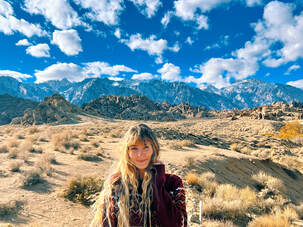 A flutter of wings, silver echoing shimmer reflects the plastic of the hothouse, a tan moth whirlpools in a browning tub of water. - An excerpt from “Devotion” by Dudo Dudo grew up in the small town of Estell Manor, New Jersey. As a child, she wrote stories and gave them to her teachers. After high school, she enrolled at Stockton University. Initially, she began as a fiction writer until she took an advanced poetry class. It opened up something in her that couldn’t be ignored and would begin to inform her relationship with life and the development of her craft. “It didn’t take very long for me to realize: I think this is a little more so me,” says Dudo, “not that I don’t write stories now. I still love going into different genres. I really like hybrid work too, where you write a little poetry here, a little prose there. So, I like combining things. But I primarily focus on poetry.” By the time she was an upperclassman, one of her professors told her that her work was reminiscent of the award-winning poet Larry Levis and that she should buy his book. Dudo had not yet heard of Levis, but on the advice, she quickly went out and purchased Winter Stars, which deals with the subjects of acceptance and loss. “I bought his book, and I read it,” says Dudo, “I must have read it, I don’t know, twenty times, just taking extensive notes because I was just like this is awesome. This is exactly what I want to do….What I really like about his style. At times it was gritty in content, but it still talked about something that was so beautiful.” But first, there was the beginning of a lovely romance. At Stockton, Sara became aware of fellow student Ray Dudo from Mays Landing and felt an immediate attraction. She said, “He was a really cute guy who played guitar.” Soon after the two had been introduced by a mutual friend, Sara discovered she was becoming more in command of herself – a person of purpose. Normally, she played it safe. But she began to take risks. She became a radio DJ, joined the school’s track-and-field team with no prior experience, and then there was that cute guitar player she couldn’t get out of her mind. She recalled, “We had a Shakespeare class together my senior year, and I told myself at the end of the class: on the last day at our party, I would make him a mixed CD and inside of it, I would put a 3-page letter telling him that I liked him. I did that,” she adds. She gave Ray the letter in December. For several months, she would bump into him occasionally. He said nothing about the contents of that letter. Then came Spring. “I used to work at a flower farm in Vineland, New Jersey,” says Dudo, “I’d worked there for about three to four years at that point. I was about to go back in the spring and work there through the summer. He heard that they were hiring, and he went and got a job. He worked there for about a month with me. I wasn’t sure if he was doing it because he was taunting me or if he liked me. And then, he finally asked me on a date.” After Ray took the job, she began to notice he was losing some weight, but she assumed it was from the cardio from all the walking on the job. Then, everything changed. “We started dating in June of 2018, and he was diagnosed in August of 2018,” says Dudo about Ray’s diagnosis of Hodgkin's Lymphoma, at which time he immediately began treatments. Both Sara and Ray continued their undergraduate studies. Ray was still living at home, and so his mother was a huge help to him. Sara accompanied him to as many of his bi-weekly chemotherapy treatments as possible. She also visited him daily to encourage him and cheer him on. When it was discovered that the chemo didn’t really work, he did radiation therapy in the spring of 2019 until about May. Also in May, Sara and Ray walked at graduation together. Relief came in June of 2019 when he was cleared, and radiation seemed to have worked. They celebrated in August of 2019 by embarking on a cross-country road trip, living out of their car - having a wonderful time. Then, their world was about to face challenges once again. During spring of 2021, the cancer returned. This terrible news came right as the couple was planning their wedding. At that same time, Sara was sick with autoimmune troubles. Still, they were wedded in June of 2021. In July, Ray went in for a complete stem cell transplant. Sara became his full-time caretaker. Luckily, this treatment would be a success, and in the Fall of 2021, he was cleared of cancer. The experience infused Dudo’s writing, creating some of her most personal work to date embodying reflection and introspection on health. “I ended up writing a series of elegies,” says Dudo, “instead of a traditional elegy of someone passing, a kind of an elegy to these ideas of youth and of things not being the same. The idea of parting. In a stem cell transplant, the chemicals and the chemotherapy that the body undergoes, it kills every single stem cell in the body, and it produces brand new ones based on the infusion that they have to get. So even elegies to the stem cells that would have to be destroyed, stem cells that I felt we shared in experience being together. I ended up doing a lot of research in the desert, on the desert and the ecosystem and its landscape, and I got really into doing a lot of comparisons between his body and my body with its autoimmune issues.” The couple relocated to Las Vegas beginning at the end of 2021. At the University of Nevada Las Vegas, where Sara graduated with her MFA, she taught Introduction to Creative Writing, College Composition I, College Composition II, and was the course creator and developer of ENG 451B: American Literature II. In July of 2023, the couple moved back to New Jersey. In 2023, Dudo published a micro-poem in the Cincinnati Review called "Remission," in which the complex work beautifully reinforces the focus of the subject, her husband, by the repetition of using his name. The piece balances reference to the side-effects of his chemotherapy treatments, but at the same time, reflects on and elevates specific moments from his childhood. 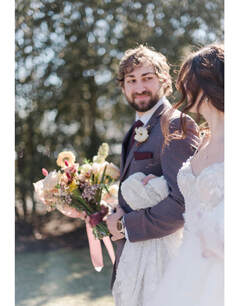 ray the bird in you the jade in you the try in you ray the wren you watched from child window ray the flowering-pear phalanx on Main rounding the haste in you ray your voice ray locked in pink brine ray crystallizing the caramel ray rust water and freeze ray the green grass not green land dry dirt desert landscape in you ray the thin hair too thin for your thickness ray ray the plucking huckleberry mouth invite the pies Mary baked ray the name belongs to you, brown moonrays thousand knive an orange creek a secret bridge herring run ray a thickness to reach in to pinch fish at midnight with a hand ray rays hand an old church two hands makes a cathedral rays Holy Thursday candlelight puncture choral mouth ray the sound of your body dredging bees congregation around purple rhododendron bloom ray the sound of love waiting on brick porch barrier island Italian pancakes a nose full of salt a rose bush somehow stays alive ray. "Remission" by Sara Dudo Posted by Cincinnati Review on June 28, 2023 While the work was perhaps cathartic, the emotional repercussions would be ongoing. “Even if he survived, and obviously I was very happy he was doing well, there would still be a sort of death of the relationship that we had, our youth, of things kind of being what they were and knowing that in the future things were always going to be different,” said Dudo, “so grieving is another kind of shift,” she added. Yet, like in poetry, there have been moments in their narrative of not just shadows, but of lightness and enchantment – like on June 4th, 2021 when the two married at her grandparent’s old blueberry farm. At one point in the day, as the young couple commemorated their relationship and celebrated with the gathering of more than two-hundred friends and family, it began to rain. And like a poem, they clung to each other, droplets from the sky nurturing their union, like words planted on a page. Today, Sara and Ray are busy in their careers in academia. Sara is an adjunct professor of Writing at Rowan University. Last semester, she taught College Composition I at Rowan, as well as a College Writing Intensive at Stockton University. This semester, she is teaching The Writer’s Mind at Rowan. Ray is a busy high school English teacher. The couple enjoys road trips and travels with their dog, Layla. They also have a cat, Mosie. They enjoy spending time with family, which is part of the main reason they returned to the area from Vegas. Still, the wanderlust in them may take them on new adventures, destinations unknown with landscapes that will inform new works. 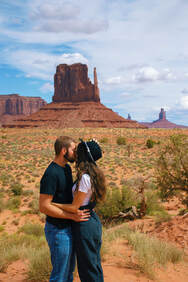 “Talking about the body and the landscape and the land, at the same time I did a lot of thinking about the land here in South Jersey and how that’s where we grew up. And how our bodies are so interconnected to this land. The root of it is, I was afraid to come back here because, in the desert, we both had a period of health where nothing was really wrong. We were healthy. My body was behaving. His body was behaving. He was doing well after the stem cell transplant and a fear of coming back here to the land where everything has always gone wrong,” says Dudo.  She has some tough emotional memories of growing up in the area, including the death of an uncle who died suddenly and the passing of her grandmother. “I finally could grieve for my grandmother who helped raise me and get distance, enough to see her beauty as well as her shortcomings and how she often pressured me as a child to be a third parent for my brother with Down Syndrome.” There was also some hesitation about how the future would play out. “I was also scared to return to a place where, though I hoped everything would be the same as when we left, I knew my sister-in-law was about to have a baby and my best friend as well, and I was nervous about facing the looming uncertainties of our fertility and the possible pain and physical/emotional turmoil that we might face in trying to move to the “next chapter” to assimilate, in a way, with our family and friends.” Note: Sara Dudo has been published in The Cincinnati Review, The Atlanta Review, The Idaho Review, The Portland Review, Southwest Review, Red Rock Review, and Oakland Review. She is a Pushcart Prize nominee, and a recent “Best of the Net” nominee. In true style of an artist, we can only imagine that Dudo will continue to explore life using her expressive talents for writing words that will form into lines of poetry, images that create lasting impressions, stories that will continue to resonate with readers and honor their own life events with a dignity that comes from one who has reverence for the work. By: Kelly McCarthy
Growing up, I always felt isolated and disconnected from those around me. It was hard for me to connect with my friends on a personal or emotional level. Sure, there was some teen angst involved, but it was more than that. Social interaction wouldn’t come naturally to me, and I felt weird for how I acted and how my brain worked. I didn’t even fully comprehend the things I felt and thought. I just felt disconnected and ostracized, like a stranger to the human race. That experience is where my love for art began.
Art helped me deal with these internal struggles I held. The lyrics of music specifically meant a lot to me around the end of middle school and all throughout high school. Seeing other people express themselves and put the emotions I had into tangible words grounded me from feeling so distant from the world. I was able to put a description on all these different things that I was, and found a connection I had never truly felt through others’ words. “I spent my life weighed down by a stone heart Drowning in irony and settling for anything Somewhere down the line all the wiring went faulty I’m scared s***less of failure and I’m staring out at where I wanna be” “I Just Wanna Sell Out My Funeral”, The Wonder Years These are a set of lyrics that I held dear to my heart when I was in my teen years. These lyrics felt like someone was able to reach inside my brain and pull out all that was within. I felt less alone, less like some oddity – as if someone else had similar thoughts and feelings, and they were able to explain it so simply. The lyrics captured how I felt defected, like something with my brain was made wrong, how I felt stuck with who I was, how I looked at others with jealousy and longing. “With a winning smile, the poor boy With naivety succeeds. At the final moment, I cry I always cry at endings.” “Get Me Away From Here, I’m Dying”, Belle & Sebastian This set of lyrics builds upon this idea of doubting the best to happen – a pessimistic worldview, which I used to find myself in. I don’t know if I can describe the bigger emotion of this writing. It’s this sadness of things ending, even when it's for the better. I often find myself crying to the endings of happier pieces of work, like Hayao Miyazaki movies or love songs. In the world and in my household, growing up made it seem shameful for a man to get emotional as often as I did. Hearing a guy from the nineties sing about crying to endings regardless of their outcome made me feel more secure in my sense of self, and allowed me to grow into a better person. “In a world that I can’t fix With a hammer in my grip, I’m no closer to heaven. I can stay here in the darkness Feels like I’m wandering in circles for days I may never reach the gates I’ll keep walking anyway I’m no closer to heaven” “No Closer To Heaven”, The Wonder Years These lyrics express a dread that bubbles inside me. As an eternal people pleaser, I want to help the people around me, friend or not. I hate to be an inconvenience, and I feel especially terrible when I can’t help the ones I love. It can be very hopeless, but the second set of lyrics remind me that I need to keep moving forward and not let that feeling take over. This moves into a different kind of writing that I think everyone points to as comforting. Motivational writing creates a space that helps you to keep moving forward, keep doing your best, and keep living life to the fullest. Personally, it's always been nice to have a short set of words to repeat to myself whenever I need to pull myself up and out of a dark headspace. “This is not where we belong, But it's where we are right now. Find a spot and settle down.” “Sunny Brixton”, Superchunk This has been the perfect mantra for where I am in my life currently and where I may continue to be throughout the rest of my twenties. Maybe it will take a while to get to a time where I have a successful career, a place to live, and a life with the people that mean the most to me. But that doesn’t mean the time it takes to get there has to be any less enjoyable. I need to enjoy the life I have and enjoy it now. “Time isn’t holding us, Time isn’t after us.” “Once In A Lifetime”, Talking Heads It’s beautiful; it’s simple; it’s comforting; it’s everything to me. It’s these positive affirmations that life will be okay, that all my problems will not be the end of me. Words are able to create such a feeling within me, within all of us. Because writing has that power over us: to inspire, to cradle, to move us. It makes us who we are, as authors and as humans. As I’ve drafted and written this article, I wonder how much of myself comes through not in my words but in words I find solace in. I wonder what your favorite quotes, passages, and lyrics are and if they speak towards the person you are now or at least, the person you want to be. I want to end on what I think is the most important piece of writing I have heard in my life. The atlas of my outlook as I am now. What I always try to keep in mind as I go about my days. And I hope it shows the power writing can have on anyone. The musician, Jeff Rosenstock, wrote the lyrics 15 years into his career, after hundreds of other songs. You will always find new feelings to express and new words to express yourself. Keep writing and write from your heart; it might just touch someone else’s. “And it’s not like the love that they show us on TV, It’s a home that can burn, It’s a leg to freeze. Love Is Worry.” “…While You’re Alive”, Jeff Rosenstock By: Robert Scanlon On February 29, 2024, the Rowan Writing Arts Department was honored to have award-winning author Nana Kwame Adjei-Brenyah on campus for a live reading of his novel, Chain-Gang All-Stars — which was a national bestseller, New York Times’ Top 10 Book of the Year, and a finalist for the National Book Award. Prior to the main event, Adjei-Brenyah held a “fireside chat” Q&A panel with several Writing Arts students at James Hall. All were given a copy of Chain-Gang All-Stars, to which some had already read and came ready with questions concerning the story and others who were just excited for the opportunity to chat with an author like Nana Kwame. Regardless of the classroom setting, there was never a moment where we felt detached from talking, and what stood out to me was the reality of the room — a room full of writers learning from another. While Adjei-Brenyah answered many questions centered around Chain-Gang All-Stars and his previous work Black Friday, he also discussed his writing process and the thoughts, feelings, and habits that coincide with it. When asked about long-term writing, he mentions that the art of creating a novel isn’t about the novel itself but about the smaller pieces — that focusing so much on creating something as long as a novel could easily burn you out. “No one writes a novel. But they did write a bunch of sentences.” Part of the process, he mentions, is understanding how those small foundational pieces matter. “How can I make this sentence matter — how the syllables sound in that sentence? Do they flow? Does it sound like a person? Does it sound like That Person?” When discussing this piece-by-piece way of writing, there was something that personally clicked: that the focus on phrasing, punctuation, and musicality of your own piece are all things that don’t go away as you continue to read and write. (Which is something further stapled by Adjei-Brenyah’s reading of his novel later on.) With writing, Adjei-Brenyah hones-in on habit — that once you keep rolling with a set of words each day as part of a routine, you’ll find your “itch to write”. Writing becomes less like a burden and more of a necessity, grounding you in the process. “Get your mind to get used it.” Moreover, Adjei-Brenyah also touches on his love for the revision process over the draft process. He calls his writing as “superimposing intention” — that if you write with purpose, all you need to do when returning to it is making sure it’s made clearer with every revision. And most of all, emphasizing that fact of simply putting the idea down first and fixing it later. This idea would circle back into his thoughts of approaching novel writing and feeling your finality as part of the intention of your story. Following the fireside chat, Adjei-Brenyah’s main event took place at Boyd Recital Hall, which many students, faculty, and visitors came excited with their love for him and his work. Prior to him coming to the stage, two amazing Writing Arts students and Poetic Justice executive board members Maureen Castle and Mia-Sara King performed their original spoken word pieces. Although their pieces touched on two drastically different perspectives, the both of them stunningly set up the passion in hearing writing come to life. While the pieces themselves already weighed-in with their experiences and their emotions, you felt their intention in the words as they spoke. In other words, it felt much less like a performance and more a showcase of who they are and who they want to be. There was a specific shift from when Adjei-Brenyah walked on stage to when he started reading excerpts within Chain-Gang All-Stars. After a welcoming introduction from co-organizer Amy Woodworth, Adjei-Brenyah was a warm, welcoming presence in himself. But the room suddenly weighed in silence as he began reading — an air that felt different than the person that just introduced himself. Adjei-Brenyah began with the prologue to his book (to which he notes: “always read the prologue”); one that immediately took everyone’s attention whether this is your first interaction to the novel or your one in many. Other excerpts included audience participation of chants and hums that existed in various points of the novel. Being in that crowd, his vision within the words came out of the pages, almost like a conductor at the front of his orchestra or a director leading a table read. There, Adjei-Brenyah immediately made known that superimposed intention he had stated before — that purpose in writing. We can sometimes gloss over novels like they’re textbooks, but hearing everyone hum in unison to a scene that translates to the ultimate defeat in something as unconquerable as the prison system wasn’t just heard but intentionally felt. Following the reading, there was a Q&A held for the larger audience which was moderated by Professor Ariana Tucker. Adjei-Brenyah expanded on story choices within Chain-Gang All-Stars, specifically his deep-dive research into the inherent racism and classism of the American prison system and how it embeds itself into a plethora of organizations complicit in its violence. He also puts into perspective the purpose of making his main character, Loretta Thurwar, a black queer woman. A highlight of the Q&A was in discussing the weapons that she and the other characters used, such as his accident symbols of a hammer and scythe through death and labor that he was originally inspired by the anime Soul Eater. Adjei-Brenyah also expanded on some earlier topics of the fireside chat concerning the writing process and why we write in the first place. One question led to him to discussing very passionately that someone will need your writing even when you don’t think so. He exemplifies that writing is an art that might not create as obvious of a result as something like sculpting, but someone will find the need in it — that someone will need your writing. While it can be easy to discuss about Nana Kwame Adjei-Brenyah and Chain-Gang All-Stars by their successes, what’s more to it is a writer and his book, a person and their story. From both events, students didn't take away the step-by-step process of becoming a successfully known author; they didn't need to because that wasn’t the purpose. Adjei-Brenyah exemplified why personal purpose is all the more important, especially in an art like writing. Just as long as you allow it to find its own finality. Thank you to Nana Kwame Adjei-Brenyah for visiting Rowan University and the Writing Arts Department faculty, staff, and students for making this event. Armaine Dela CruzPound for pound, Avant Literary Magazine is one of, if not, the most invaluable resource a Rowan Writing Arts student has available to them on campus. As the university’s second oldest club, it's been producing collections of undergraduate work each semester for nearly 60 years. For those who participate in either the club meetings or serve on the Executive Board, Avant provides a wealth of experience in giving and receiving criticism as well as seeing how a literary magazine gets made. As an Assistant Editor myself (and Avant’s #1 fan), I’m going to take you inside Avant with descriptions of what we do and interviews with the E-Board.
Firstly, what’s it like to go to an Avant meeting? Undergraduate students submit their work, whether that's a short story, poem, or even a drawn piece of artwork or photography, and then we compile them into a manuscript that we read together during meetings. I went to club meetings my entire Freshman year before joining the E-Board, and I can tell you that Avant takes all kinds. There’s talkative ones (like me), but if you wish to simply read and keep your thoughts to yourself, you’re free to do so. We read or view the piece before going through praise, then critique, and finally, voting. Yes, club members get to vote on what gets accepted into the magazine. One can vote “accept”, “submit” or “abstain”. Abstaining is usually reserved for those who may have missed the initial reading or know the author personally, or are the author. Sometimes, with pieces we especially like but might not be quite an accept, we deem those a “strong resubmit”, one’s we’d like to see again sometime. Unlike most other lit mags, you can resubmit a piece to Avant as many times as it takes for it to get accepted. My job as an Assistant Editor is to receive these submissions, write down feedback during meetings and let the author know the status of their piece. But it takes a village. My good friend Steven Flickinger is also an Assistant Editor. We split the work by alternating the note-taking duties in meetings and catching new submissions whenever we can. I asked him what the best and worst parts of the job are, and this is what he told me: “I think the best is probably…being able to be an editor and an active member of the club and contributing to the magazine at the same time. Worst part is, I’d say, Hell Night emails. Something part of the regular process is turning people’s critiques into something we can put in an email.” Being on the E-Board hasn’t stopped any of the members from still submitting pieces to the magazine and getting accepted. In the case of resubmits, Steven and I turn that feedback into a concise email for the author to take into consideration. What Steven was saying is that sometimes that feedback can be hard to transcribe. “It's giving Shakespeare vibes” is a little too vague to put down in an email, yeah? Oh, and there’s Hell Night. Hell Night is the meeting following the submission deadline, where we start early and end late. Sometimes the number of submissions reaches 100 and over. Afterwards, the Assistant Editors go through and send out feedback emails. Steven and I work closely with the club President, Editor in Chief—our boss—Kelsey Pederson. We put the submissions in the right folders and log them in our spreadsheet so Kelsey can compile the pieces into the meeting manuscripts. They help guide the conversation from praise to critique and finally, onto the vote. We make a lot of hay during the discussion and voting process but it wouldn’t much matter if we didn’t have someone to put the actual magazine together. Sam Szumloz is our Graphic Layout Designer, “...which means that I make the latest editions through Adobe InDesign. I copy and paste the latest pieces and artwork into the page layout design software and basically prepare it for hardcover printing", she explained. It's Sam’s job to make sure each piece appears in the magazine as it should be. (No pressure.) You’ll be able to see her work in the upcoming Fall 2024 edition of Avant. Our Social Media Coordinator is Rob Pallente, master of the digital domain. Most recently, our social media accounts reached out with a call for more artwork and the announcement of the March 27th submission deadline, (get those pieces in now, folks). Last but certainly not least is our Treasurer, Jackie Ganter. While Jackie isn’t a Writing Arts major, she’s a huge part of making the magazine possible: “I manage our budget for printing and food! The magazine is a great way to get involved with the writing department, even if you aren’t part of it!” Avant will be hosting a standard meeting on Marth 20th after we return from Spring Break. We meet in room 301 at 260 Victoria Street from 7PM to 9PM on Wednesdays. Hell Night is always on a Friday, so feel free to stop by at any point in the process, whether that means when we first start and still have light and hope in our eyes, or after midnight when we can hardly form a thought. Even if you can’t make it, picking up an issue around campus and giving your fellow students’ work a read, or even submitting your own work before the deadline, is a great way to not just get involved, but be a good literary citizen in your local writing community. It's a big, scary world out there when it comes to publishing, but Avant can give you a starting place to start learning about working at, and with, literary magazines. Hope to see you at Hell Night. By Adam Buckley |
Archives
May 2024
Categories |
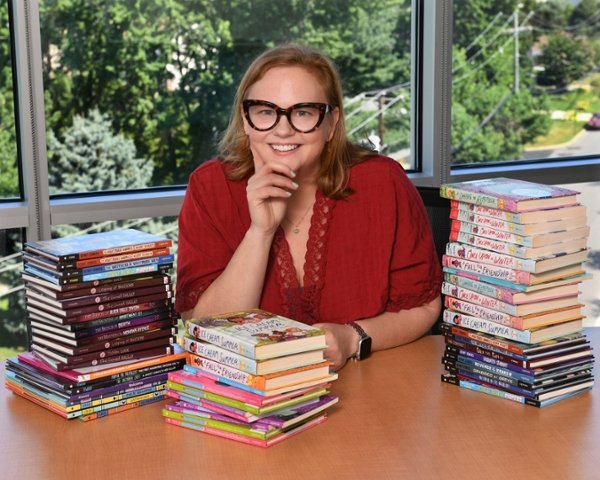


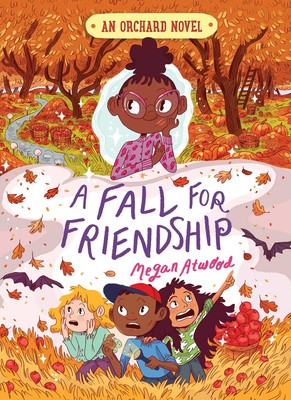
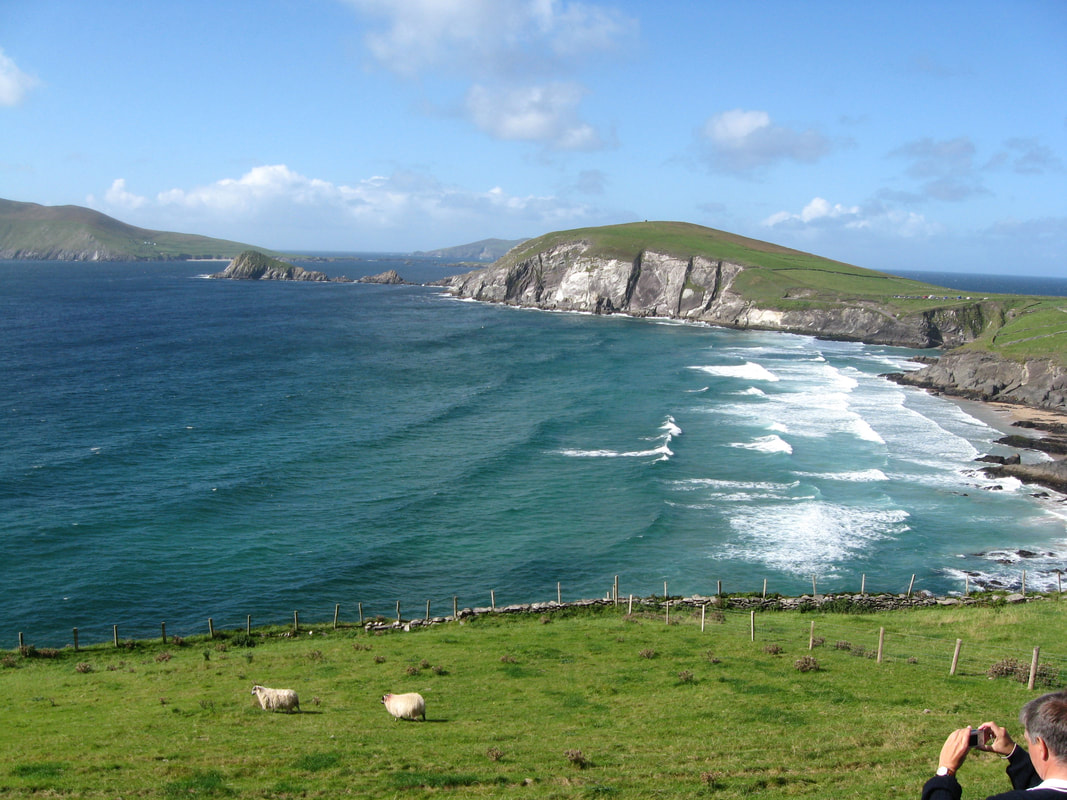
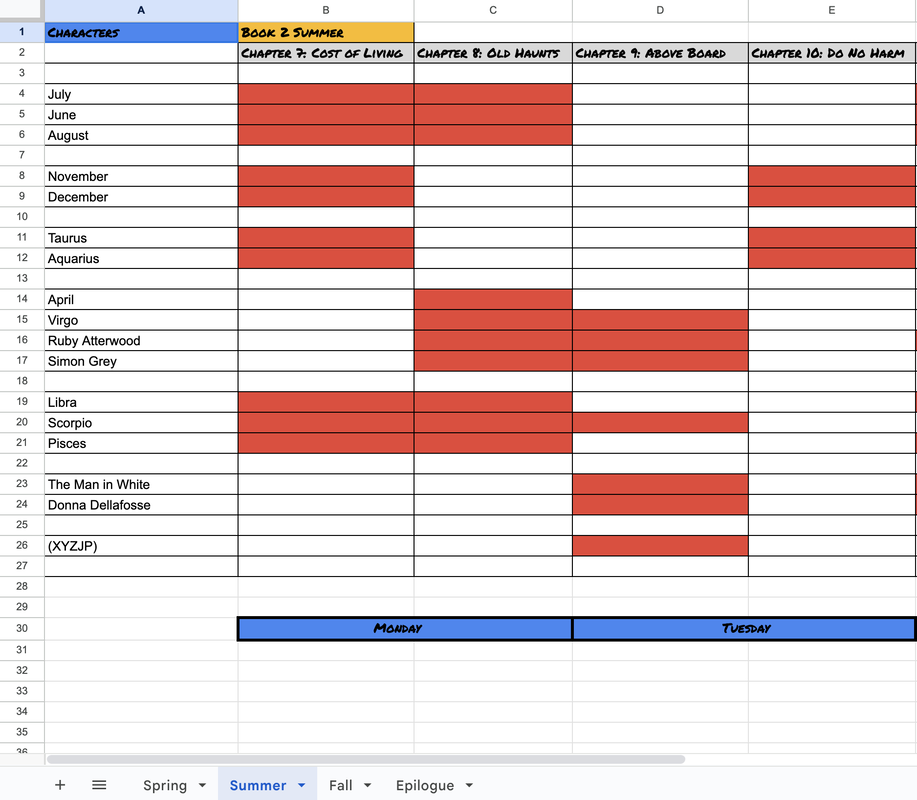
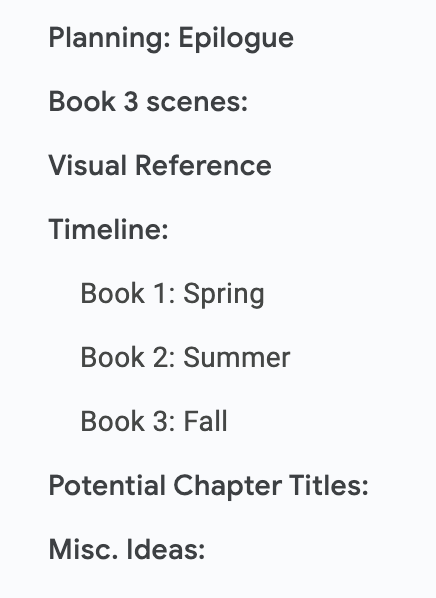
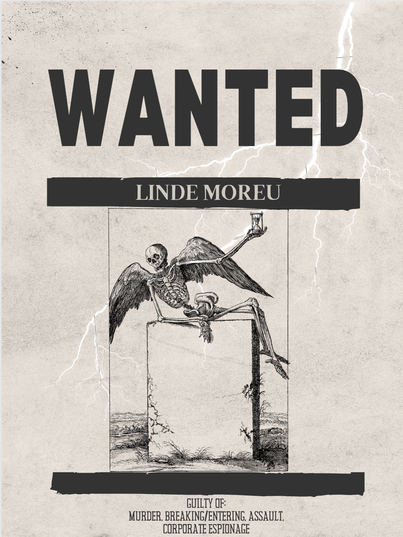

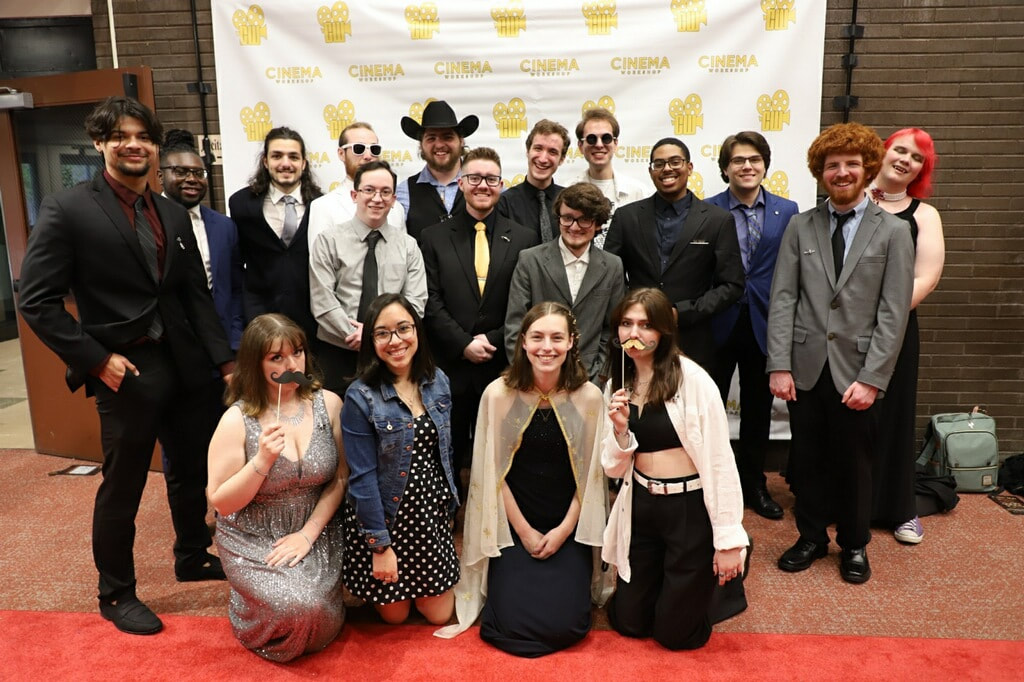
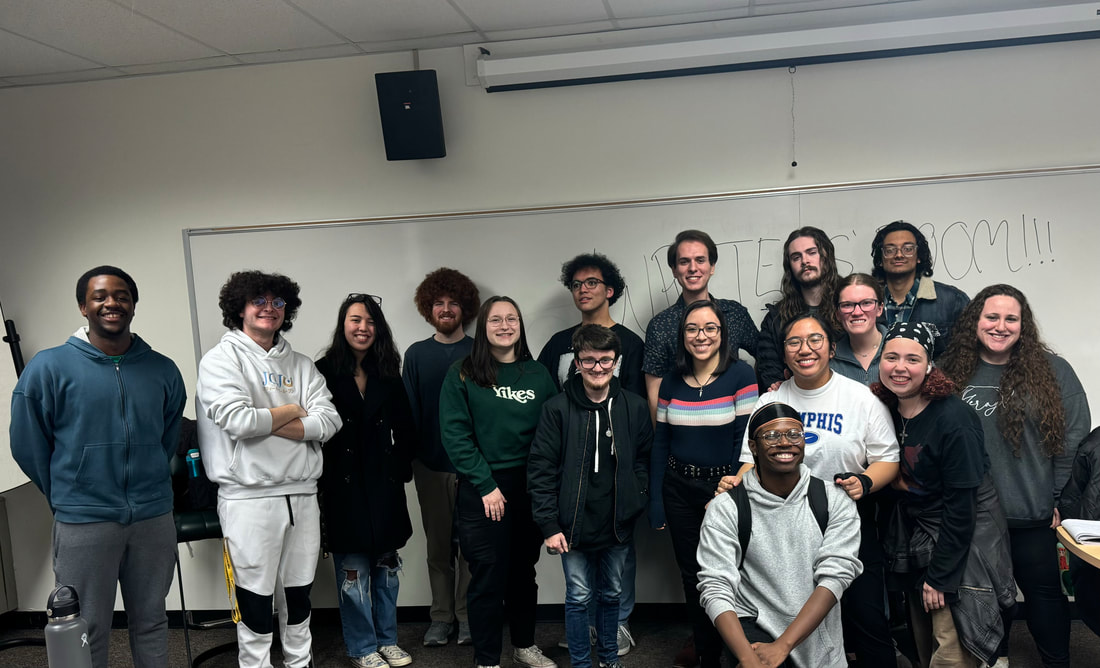
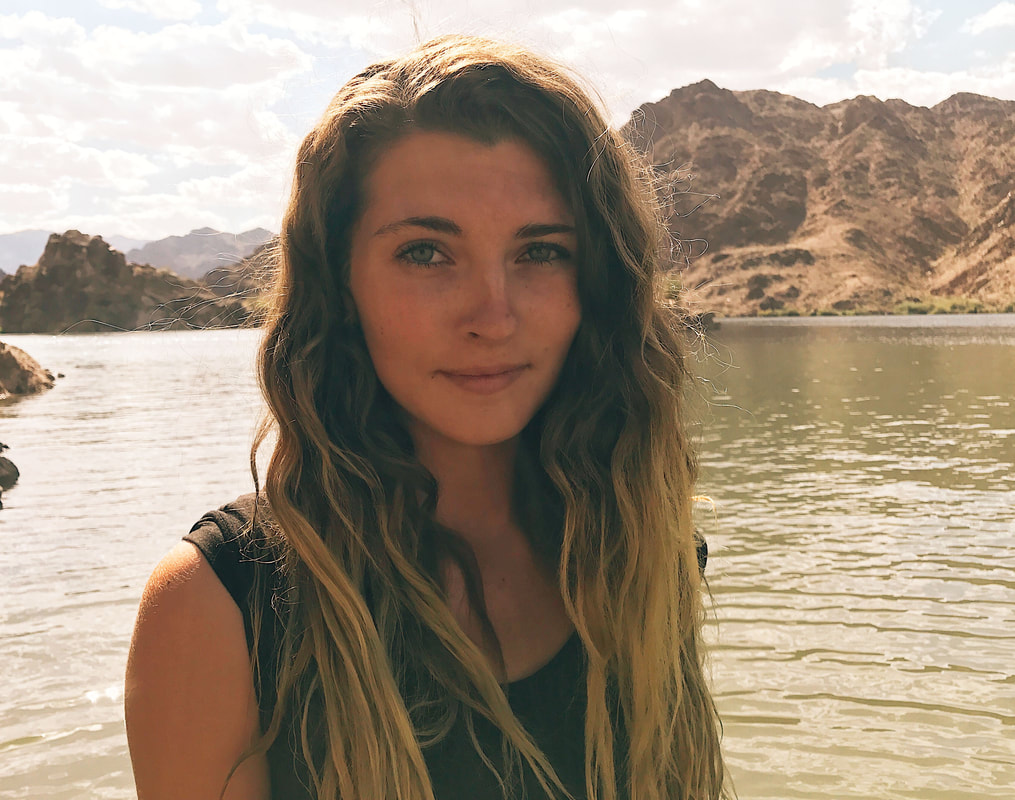
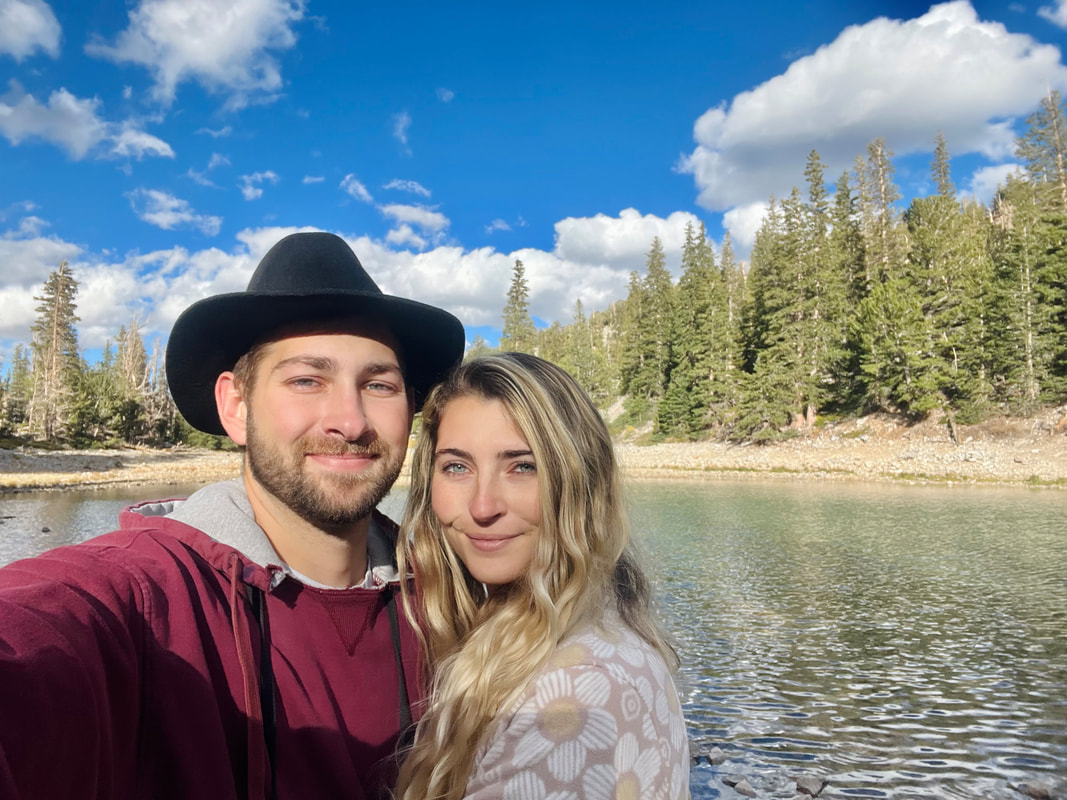
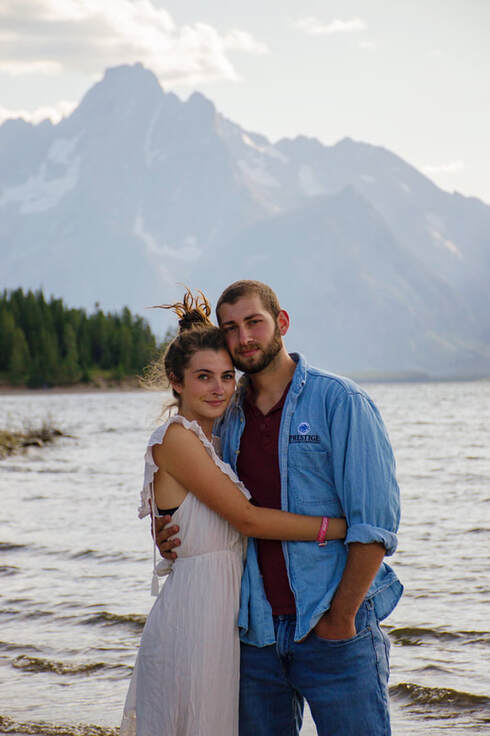
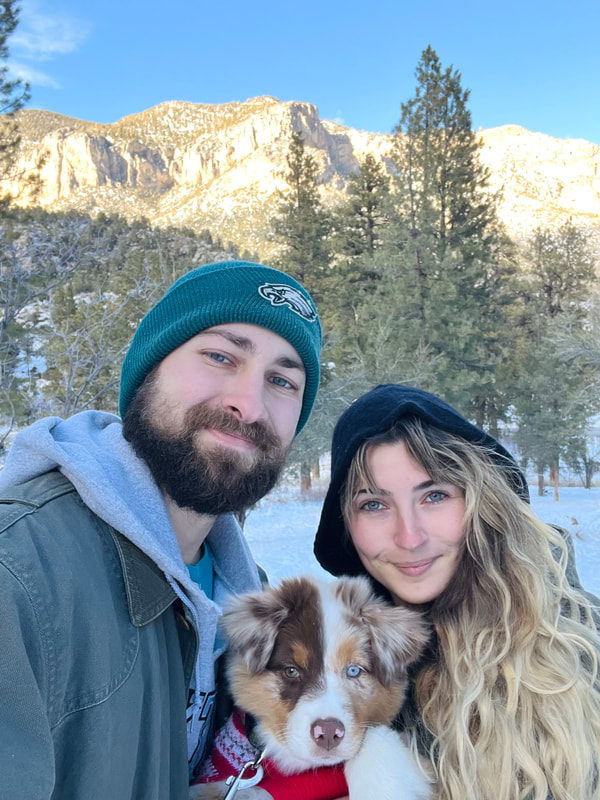
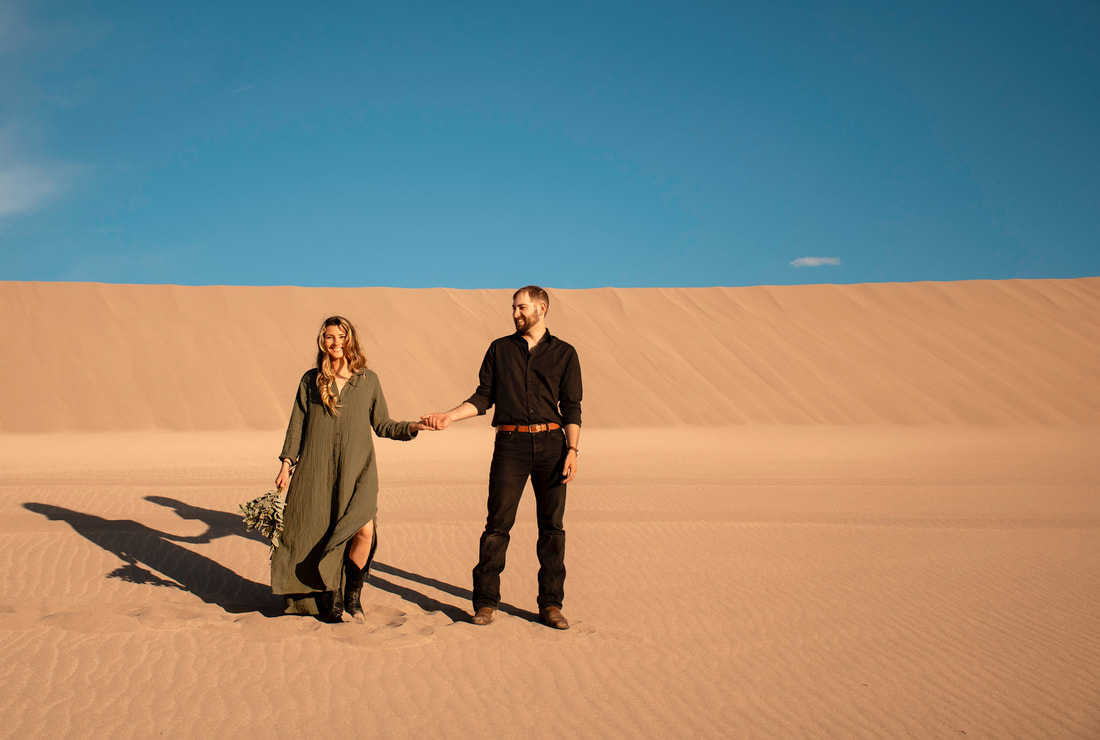
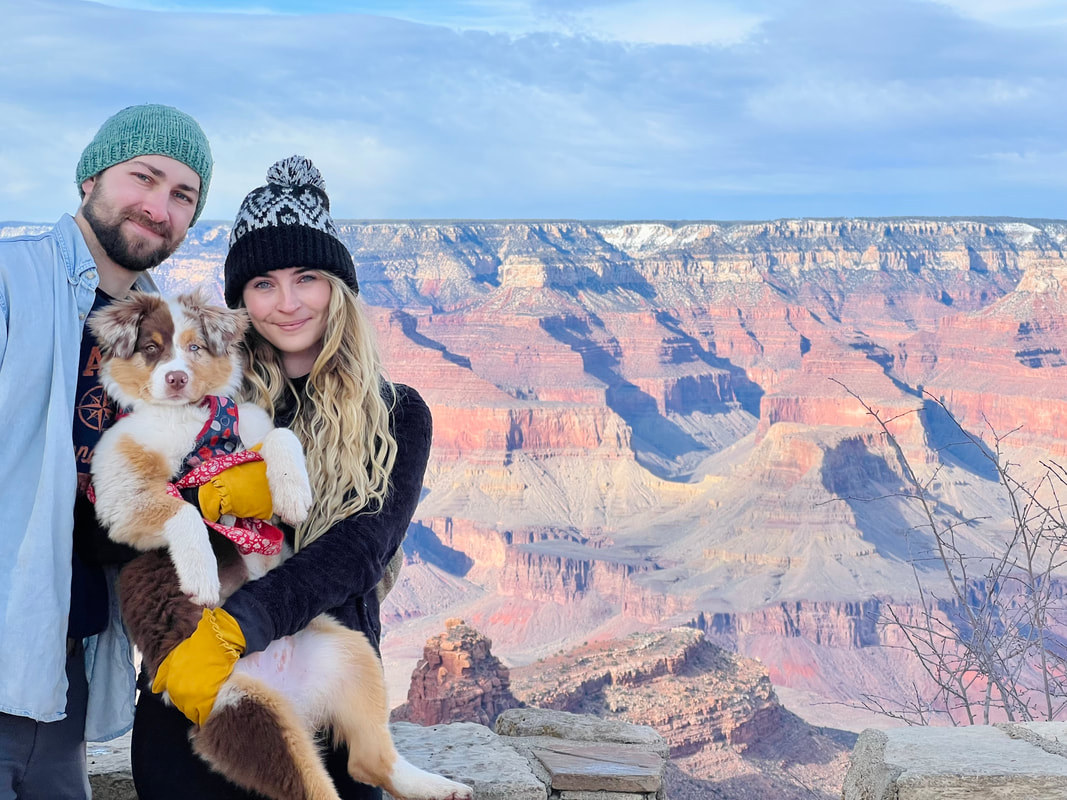
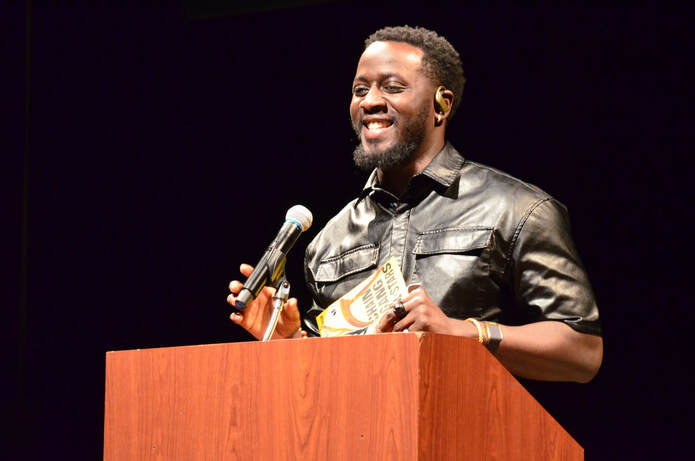
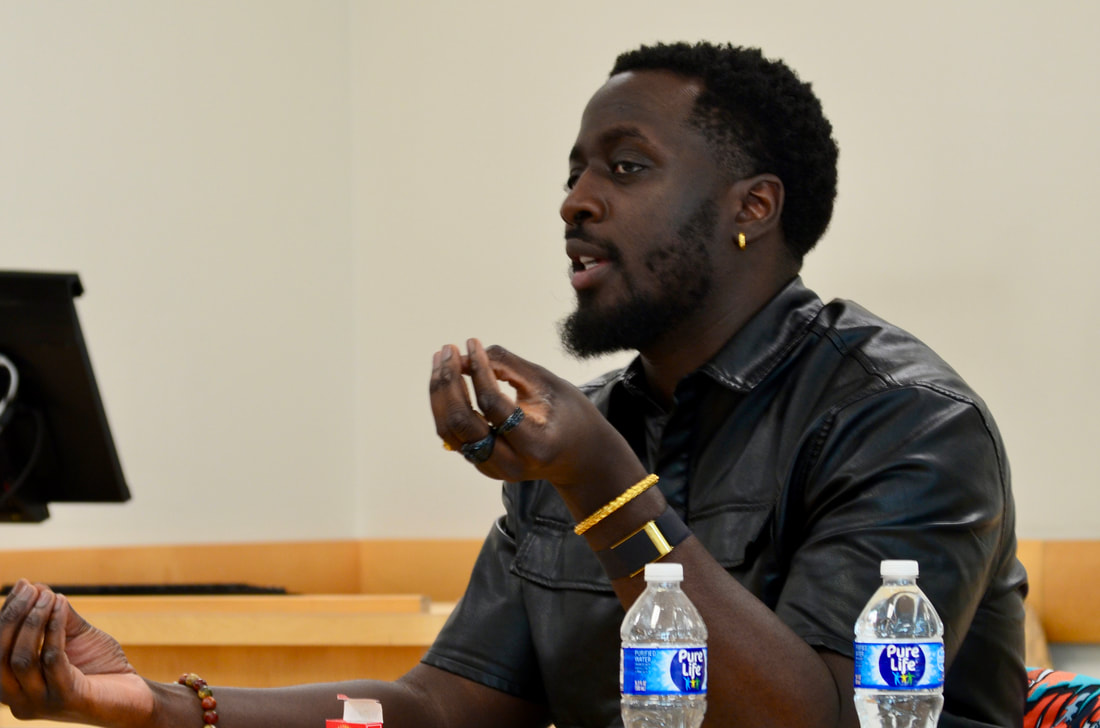
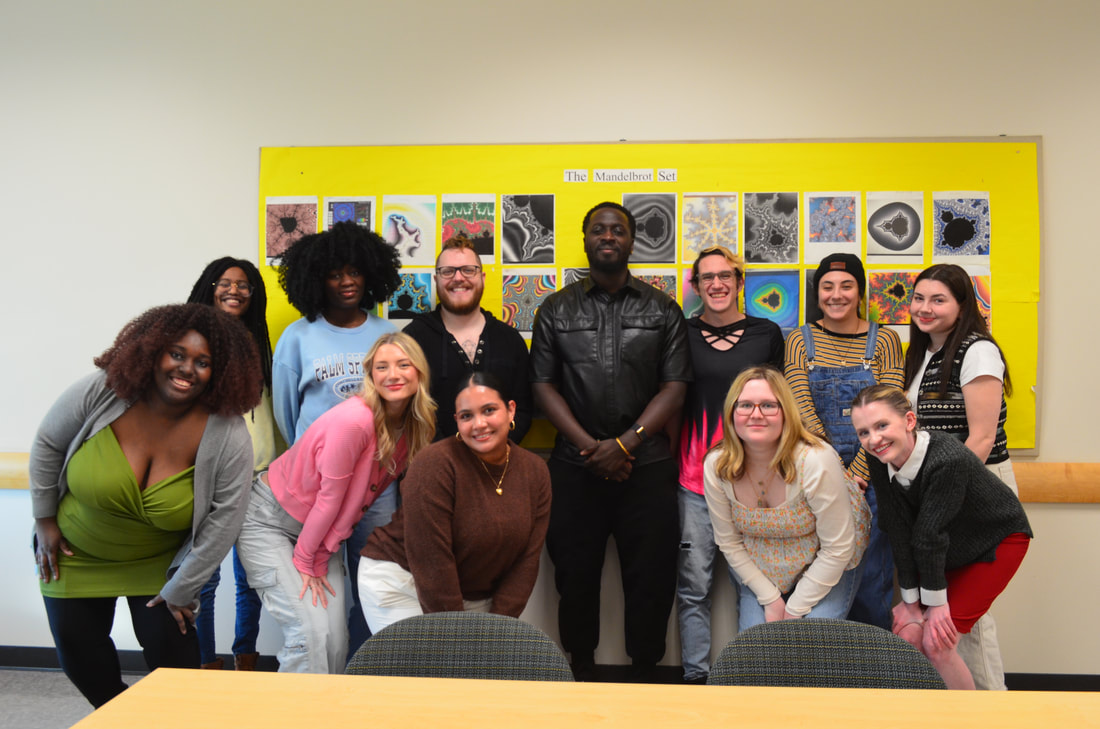
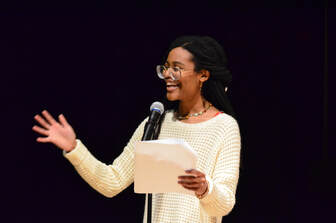
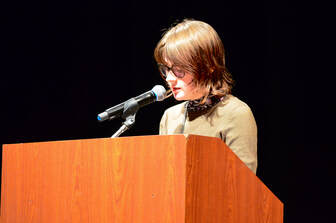
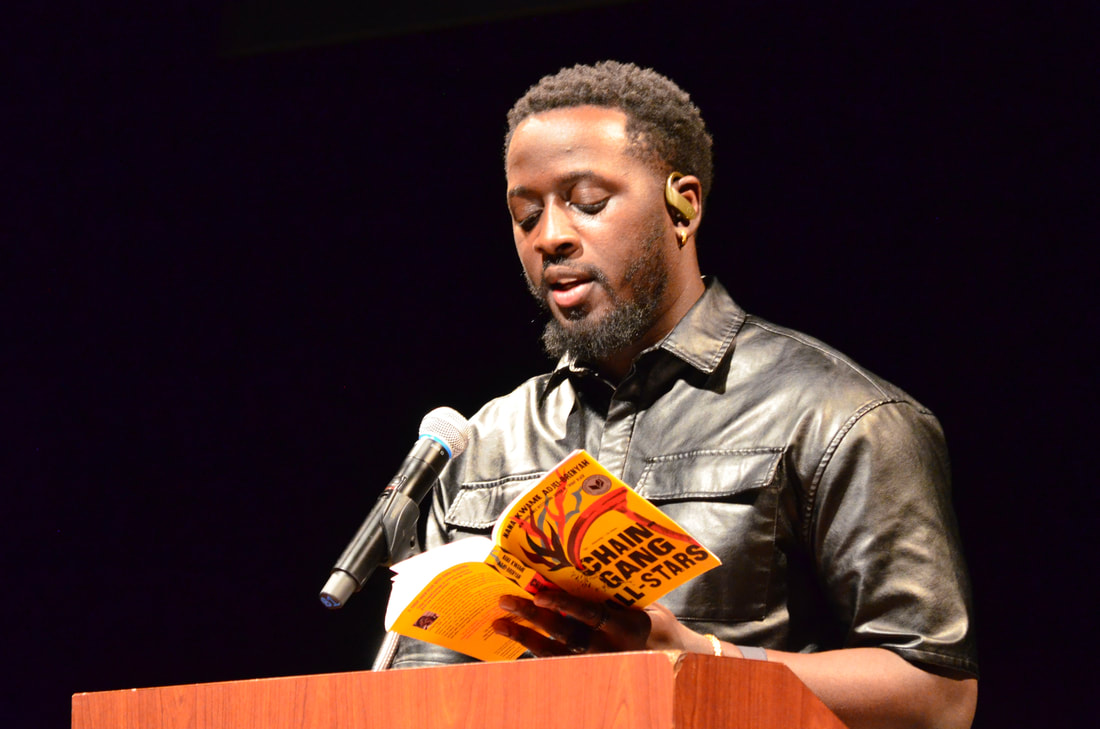
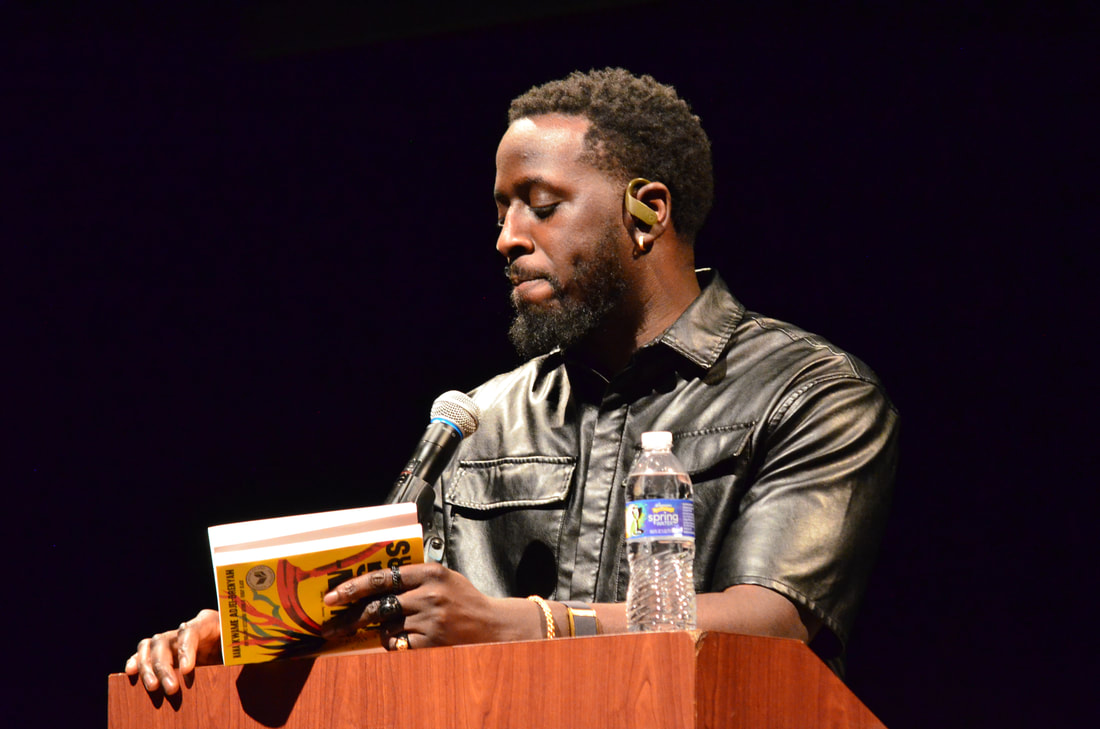
 RSS Feed
RSS Feed